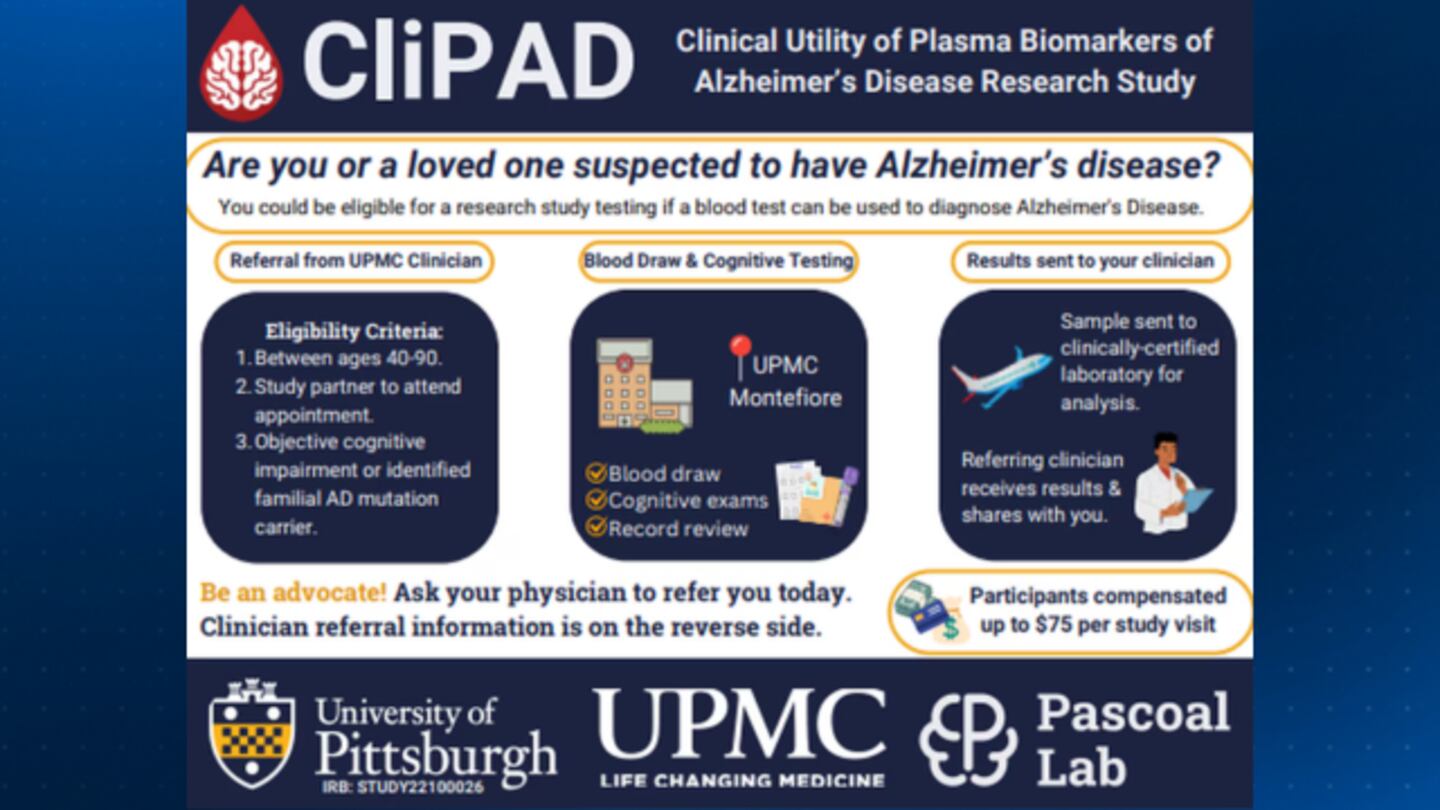PITTSBURGH — Research in Sweden shows that when blood tests are quantified in primary care settings, they are more than 90 accurate in identifying the presence of pathological proteins in the brain that are associated with Alzheimer’s Disease, according to a new study revealed at the 2024 Alzheimer’s Association International Conference in July.
Now, UPMC is performing a similar study here in Pittsburgh. Researchers plan to compare patient results with others in the U.S. to see if they’re similar to what was found in Sweden and to check the performance of that test.
Marsha Balint, 74, is one of dozens of patients participating in the study, focused on the Clinical Utility of Plasma Biomarkers of Alzheimer’s Disease (CliPAD). While her official diagnosis remains unclear, she told Channel 11 why she decided to enroll.
“I had a problem. I would go to talk, and when I would get to a word sometimes, I could tell you what it was, what color it was, I could hear in my head, but I couldn’t say the word,” Balint said.
Researchers say human brains after death have shown a buildup of a specific protein called Tau, especially abundant in people with Alzheimer’s. A research team led by UPMC neurologist Dr. Tharick Pascoal is looking for the presence of Tau by drawing a patient’s blood. Dr. Pascoal and his research team believe these blood tests, intended for patients showing cognitive decline or impairment, could be a game changer in early diagnosis.
“It’s very important you have tests that are able to confirm if that patient that you believe has Alzheimer’s disease actually has Alzheimer’s disease,” said Pascoal.
Dr. Pascoal told Channel 11 that establishing that biomarker is critical, since merely identifying symptoms, such as memory loss, doesn’t always point to dementia.
“When you do a purely clinical diagnostic in the best clinics in the country, we may be wrong 20-30 percent of the time,” Pascoal said.
Researchers point out that while other tests exist, such as a PET scan or spinal tap, blood biomarkers could end up offering a cheaper alternative that is less invasive. While blood tests are not covered by most insurance plans at this point, the UPMC study makes it available to patients like Balint for free.
“My gosh, if it’s going to help somebody and if it’s going to help me, why wouldn’t I want to do it? I’m going to do it,” Balint said.
Similar studies to test for biomarkers of Alzheimer’s disease are currently underway at UPMC but are only in the early stages of research validation. As for CliPAD, Dr. Pascoal said patients are still being recruited, but you can only be referred by a UPMC doctor.
If you are interested in participating in the research study, you can email clipad@upmc.edu or call 412-586-9012.
Download the FREE WPXI News app for breaking news alerts.
Follow Channel 11 News on Facebook and Twitter. | Watch WPXI NOW
©2024 Cox Media Group






